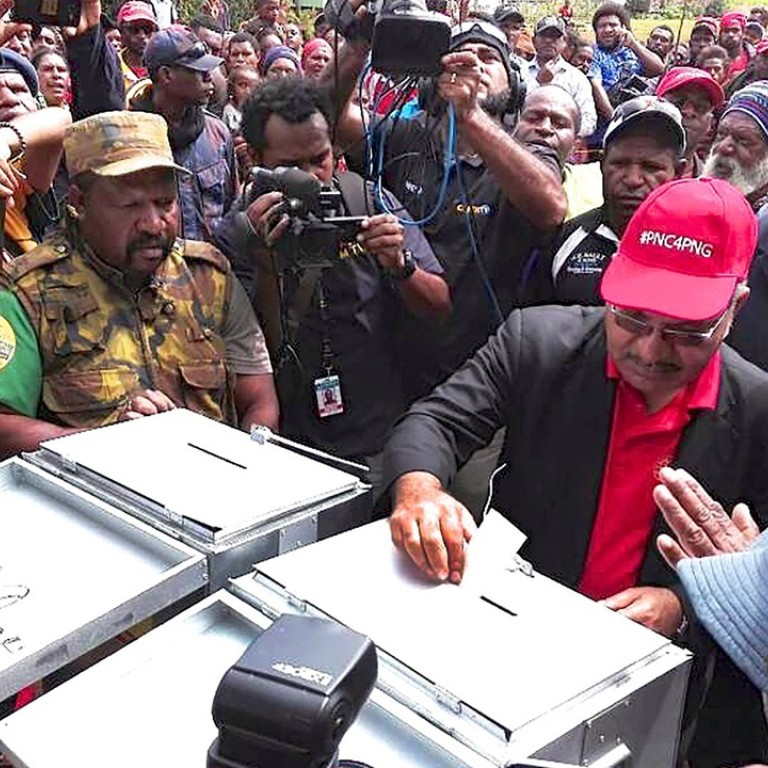
Observers claim Papua New Guinea’s election was flawed but acceptable
Prime minister has cited his government’s achievements since being elected in 2012 as delivering on key infrastructure promises and providing free education and health care
Despite being marred by violence, vote-buying and flaws in the electoral roll, results from Papua New Guinea’s sprawling election should reflect the will of the people, observers said on Monday.
Counting was under way after two weeks of voting in the vast and remote country ended on Saturday, and the Commonwealth Observer Group (COG) which monitored the polling gave a generally positive assessment.
“Our group is of the view that despite the considerable challenges with the common roll ... there were some positive aspects of the process and the results should reflect the wishes of the people who participated in the 2017 national elections,” COG head Anand Satyanand said.
Results are not expected for several weeks but the Pacific nation’s leader, Peter O’Neill of the People’s National Congress (PNC), said on Sunday he was confident of victory.
The results should reflect the wishes of the people who participated in the 2017 national elections
“The people of our nation have now voted, and I look forward to more seats being declared and to begin the task of forming the next government of Papua New Guinea when parliament resumes in August,” he said.
Ahead of the polls, he cited his government’s achievements since being elected in 2012 as delivering on key infrastructure promises and providing free education and health care in a crime-ridden country that remains mired in poverty.
His main threat is seen as Don Polye’s Triumph Heritage Empowerment Party, which accuses O’Neill of mismanagement and has reportedly claimed that polling in at least one electorate failed due to vote-rigging.
There are no opinion polls in PNG, so it is unclear who holds the advantage.
Voting for the 111-seat parliament wrapped up with a “significant number” of people complaining they had been left off the electoral roll and polling stations running out of voter cards.
In the second-largest city Lae, students burned ballot papers after not enough were delivered to cater for demand, while sporadic election-related violence was also reported elsewhere.
Satyanand acknowledged that the people of Papua New Guinea “deserve better” and called on authorities to conduct “an urgent review and lessons learned process immediately after this election and improve the accuracy of the common roll”.
The observer group also urged the PNG Electoral Commission to adopt tougher regulations given a concerning number of vote-buying allegations, “including through using state resources and provincial and district development funds made available to incumbents”.
It added, however, that “most of the polling officials we met carried out their responsibilities in a non-partisan manner”.
The next government will face challenges including an economy hurt by slumping commodity prices, widespread allegations of corruption, and communal violence among a vast tribal population.

.png?itok=arIb17P0)